Saudi Arabia ends travel ban on 11 countries Arab news

https://arab.news/p3bwd
- The countries include the UAE, German, USA, Ireland, Italy, Portugal, UK, Sweden, Switzerland, Japan and France
JEDDAH: Saudi Arabia has lifted travel restrictions on 11 key countries, originally imposed to curb the spread of a variant strain of coronavirus.
From 1 a.m. on Sunday, passengers from the UAE, Germany, the US, Ireland, Italy, Portugal, the UK, Sweden, Switzerland, France and Japan may enter the Kingdom with the implementation of quarantine regulations.
According to the Saudi Public Health Authority (PHA), these countries have shown stability in containing COVID-19. However, 13 countries remain on the Interior Ministry’s no-go flight “red list.”
They are Libya, Syria, Lebanon, Yemen, Iran, Turkey, Armenia, Somalia, the Democratic Republic of Congo, Afghanistan, Venezuela, Belarus, and India. Citizens wishing to travel to these countries need prior permission.
The General Authority of Civil Aviation has issued instructions to all airlines operating in the Kingdom’s airports regarding the update of travel restrictions for travelers arriving in the Kingdom.
Non-Saudi travelers arriving in the Kingdom, the exempted travelers, immunized and unvaccinated groups must provide health certificates approved in the Kingdom (Coronavirus examination certificates PCR) not exceeding 72 hours from the flight time.
This applies to everyone aged 8 years and older, and travelers who meet the conditions of institutional quarantine for a period of seven days at one of the accommodation facilities approved by the Ministry of Tourism, provided that a swab carried out on the sixth day produces a negative result.
BACKGROUND
For months, travelers planning to return to Saudi Arabia found it difficult to do so because of the restrictions involved.
For months, travelers planning to return to Saudi Arabia found it difficult to do so because of the restrictions involved.
Many passengers in particular found themselves stranded in the UAE, a major flight hub, and the easing of restrictions brought a sigh of relief for many with families, even with the institutional quarantine requirements.
Nagham Hassan, 38, a Syrian expatriate resident in the Kingdom, has been in France since January last year and has not been able to return to Jeddah because of flight restrictions and lockdowns imposed in both countries.
“My parents moved to Saudi Arabia over 40 years ago and it’s always been home,” she told Arab News. “I got married just a few months before the pandemic started, and they were planning on a large family get-together for my French husband and me.
“The news came as a surprise and it’ll be great to get back home and see everyone again. The pandemic ruined a lot of things, but strengthened ties and it’s finally good to be heading back home soon.”
- The transported waste aims to protect 600,000 people from hospital-acquired infections
- Saudi project Masam clears 2,183 land mines in Yemen
RIYADH: The King Salman Humanitarian Aid and Relief Center (KSrelief) in cooperation with the World Health Organization, has provided supplies to safely transport and dispose of medical waste in Yemen’s health facilities.
The waste was safely transported from 45 health facilities, with the aim of protecting 600,000 people from hospital-acquired infections and ensuring a good healthy environment, KSrelief said in a statement.
The move is part of the center’s efforts to support the health sector in Yemen.
Meanwhile, the Saudi Project for Landmine Clearance (Masam) dismantled 2,183 mines in Yemen during the fourth week of May.
The figure comprised 13 anti-personnel mines, 927 anti-tank mines, 1,230 unexploded ordnances and 13 explosive devices, the Saudi Press Agency reported.
Masam is one of several initiatives undertaken by Saudi Arabia on the directive of King Salman to help ease Yemeni suffering.
Saudi and international experts are removing mines planted by the Houthi militia in Yemeni regions especially Marib, Aden, Al-Jawf, Shabwa, Taiz, Hodeidah, Lahij, Sanaa, Al-Bayda, Al-Dhale, and Saada.
A total of 251,549 mines have been cleared since the start of the project. More than 1.2 million mines have been planted by the Houthis, claiming the lives of hundreds of civilians.
Masam has 32 demining teams. It aims to dismantle mines in Yemen to protect civilians and ensure that urgent humanitarian supplies are delivered safely.
It trains local demining engineers, gives them modern equipment and it also helps mine victims.
Last year, Masam’s contract was extended for one year at a cost of $30 million.
- Help is expression of “solidarity with close friend,” says Saudi ambassador
- “Health cooperation is one of the most important aspects of our strategic partnership” he added
NEW DELHI: Saudi Arabia on Sunday shipped 60 tons of oxygen to India, a month after it sent 80 tons to help the South Asian nation deal with a deadly second wave of coronavirus.
The outbreak has claimed the lives of more than 300,000 people so far, primarily due to an oxygen shortage and a lack of hospital beds.
On Sunday, India registered more than 165,000 new COVID-19 cases and nearly 3,500 deaths.
Saudi Arabia’s ambassador to India, Dr. Saud Mohammed Al-Sati, called the oxygen shipment an expression of “solidarity with a close friend.”
“The shipment of liquid oxygen will depart from Dammam on Sunday and is expected to arrive in Mumbai on June 6,” he told Arab News. “Many other such shipments will be sent in the coming days and weeks. The Kingdom stands in solidarity with our close friend India in this difficult time. The recently announced shipment of 3 ISO tanks filled with 60 tons of liquid oxygen comes as a good gesture toward our friends in India to support their efforts to respond to the challenges posed by the pandemic of COVID-19.
“Health cooperation is one of the most important aspects of our strategic partnership and will continue as an important area of focus. Since the early days of the pandemic, our health cooperation has been growing.
“Thousands of Indian medical practitioners work in Saudi Arabia’s hospitals and medical institutions. Throughout the phases of the pandemic, we have maintained uninterrupted supply chains of goods, pharmaceutical, and medically related products.”
The Sunday figures are a sharp drop from the numbers reported in April and earlier this month, when the daily infection tally stood at 400,000 and more than 4,000 people were dying every day.
According to official data, India has registered 318,000 deaths since the start of the pandemic.
But media reports and independent observers claim the real figure is several times higher, with the second wave claiming lives in major cities and also in rural areas.
“Deeply appreciate the gesture of HRH Prince Abdulaziz, Minister of Energy, KSA for the offer to send 3 ISO Containers with 60 tons of LMO (Liquid Medical Oxygen), which are expected to arrive in Mumbai on 6 June 2021,” Indian Oil Minister Dharmendra Pradhan tweeted on Saturday.
Pradhan said that 100 more oxygen containers were expected to arrive in the next few months.
“The gesture of Saudi Arabia is reflective of the close friendship and warmth between the leadership of Saudi Arabia and Hon’ble PM (Modi),” he added.
India contacted OPEC when it was in desperate need of oxygen and held talks with countries including Saudi Arabia, the UAE and Kuwait to source the life-saving item.
Earlier this month, Pradhan held talks with Saudi Energy Minister Prince Abdulaziz bin Salman, the UAE Minister of Industry Sultan Al-Jaber, and Qatar’s Energy Minister Saad Sherida Al-Kaabi for oxygen supplies.
“The three containers and additional containers that will come in the weeks ahead will remain with the Indian Oil Corporation Limited (IOCL) for 6 months as a goodwill gesture from the Saudi Government, and IOCL will source LMO from Linde Dammam on commercial terms for import into the country,” Pradhan said.
Bilateral ties were strengthened during Saudi Crown Prince Mohammed bin Salman’s visit to New Delhi in Feb. 2019.
The two countries signed investment deals worth $100 billion across the energy, petrochemical, infrastructure, agriculture and manufacturing sectors, and a proposed Strategic Partnership Council came to fruition in Oct. 2019.
As the world’s largest vaccine manufacturer, the Serum Institute of India has so far supplied Saudi Arabia with 3 million doses of the Oxford-AstraZeneca vaccine.
The COVID-19 crisis has brought a new depth to the relationship between the two countries, according to former Indian ambassador Zikrur Rahman.
“Saudi Arabia and India not only share a strategic partnership in oil and investment, the partnership spreads in many fields,” Rahman told Arab News. “The crisis is the test of the relationship, and it shows how far it has deepened. Within this framework, the Saudis have come forward when India needs the necessary items like oxygen. Saudi has demonstrated its real concerns for India.”
- The Kingdom said 1,201 patients recovered in past 24 hours
- Six mosques reopened in two regions after being sterilized
RIYADH: Saudi Arabia recorded 13 new COVID-19 related deaths on Sunday, raising the total number of fatalities to 7,347.
The Ministry of Health confirmed 907 new confirmed cases reported in the Kingdom in the previous 24 hours, meaning 449,191 people have now contracted the disease.
Of the total number of cases, 9,706 remain active and 1,408 in critical condition.
According to the ministry, the highest number of cases were recorded in the capital Riyadh with 258, followed by Makkah with 232, the Eastern Province with 139, Madinah recorded 86 and Asir confirmed 65 cases.
The health ministry also announced that 1,201 patients had recovered from COVID-19, bringing the total number of recoveries in the Kingdom to 432,138.
The ministry renewed its call on the public to register to receive the vaccine, and adhere to the measures and abide by instructions.
The Ministry of Islamic Affairs reopened six mosques in two regions after temporarily evacuating and sterilizing them, bringing the total number of mosques closed and reopened after being sterilized to 1,425 within 113 days.
The coronavirus pandemic has affected over 170 million people globally and the death toll has reached around 3.55 million.
- It was the latest in a series of missile and drone attacks by the Iran-backed militia against Saudi Arabi
- The OIC says it supports all measures taken by coalition forces to protect civilians and civilian objects
RIYADH: Coalition air defenses intercepted an explosives-laden drone launched by Yemen’s Houthi militia toward Saudi Arabia late on Saturday, the alliance command center said early Sunday.
In a statement carried by state TV Al-Ekhbariya, the coalition said the weaponized UAV was aimed at the southern Saudi city of Khamis Mushait along the border with Yemen.
It was the latest in a series of missile and drone attacks by the Iran-backed militia against Saudi Arabia since the Kingdom spearheaded a coalition to restore the UN-recognized government in 2015.
Ignoring calls to support the peace negotiations being brokered by the UN, the militia has also refused to end its offensive in the city of Marib.
Brig. Gen. Turki Al-Maliki on Saturday dismissed as “fabricated” video footage released by the Houthi movement claiming an incursion by its fighters into a Saudi Arabian border area on the frontlines.
The Arab Parliament condemned the attacks in a statement on Saturday, adding that the repeated hostilities not only threatened the Kingdom, but also posed a danger to regional security and stability.
The Organization of Islamic Cooperation (OIC) strongly condemned the Houthi militia’s continued launching of drones to target populated areas in the Kingdom.
Secretary-General Dr. Yousef Al-Othaimeen said the OIC supports all measures taken by the coalition forces to protect civilians and civilian objects.
The Muslim World League (MWL) said these repeated attempts by the Houthis to threaten the Kingdom’s security and stability and global trade require the international community to combine its efforts to put an end to these terrorist risks that are backed by Iran.
“On behalf of the councils, groups and bodies around the world, the Muslim World League stands by Saudi Arabia and fully supports the measures it takes to defeat terrorism in all its forms and manifestations, and to preserve its security and stability and that of the region and enhance peace,” said MWL Secretary-General and and President of the Association of Muslim Scholars Mohammed bin Abdul Karim Al-Issa in a statement.
Al-Issa also condemned the militia’s “hateful and threatening sectarian tendencies,” their deliberate starvation of the Yemeni people, and the recruitment of Yemeni children as a flagrant violation of religious and humanitarian values, as well as international laws.
The UAE denounced the attempted targeting of Khamis Mushait and said the continuation of these terrorist attacks by the Houthi militia reflects its blatant defiance of the international community, its disregard for all international laws, and provides new evidence that these militias are seeking to undermine security and stability in the region.
Bahrain also issued a similar statement.
- Microscopes and a special microscopic imaging unit are used to photograph pathogens and diagnose illnesses
JEDDAH: Honey, an essential part of the breakfast ritual for many Saudis, is one of the most popular products from the Kingdom’s southern highlands.
For hundreds of years, the mountains of Asir have produced some of the finest varieties of honey.
The mountains are known for their climatic and geographical diversity, with thousands of trees and flowering shrubs providing an ideal environment for nature’s cultivators, bees.
The Sarat Asir mountains are ideal for beekeeping in the Saudi summers, due to the precipitation and moderate weather.
In winter, beekeepers move their hives from the mountaintops to the Tihama plains in order to achieve ecological balance and protect bees from harsh conditions.
Bees can also produce larger quantities of honey due to the availability of honey plants and trees, such as the sidr, sumra, talh, salm, darm, sharm and shouka.
Honey production is gaining extra attention from the government, which has launched several projects to encourage beekeeping.
The projects hope to train Saudi youth to pursue beekeeping as part of a campaign to promote the culture of beekeeping in the Kingdom in line with the Kingdom’s Vision 2030 plan to diversify the labor market.
Realizing the importance of beekeeping and honey production in achieving self-sufficiency, King Khalid University in Asir has set up a special research unit on bees and honey production, which will also help to create jobs for Saudi youth.
The Bees and Honey Production Research Unit has launched several programs and initiatives, including the “Distinctive Trademark” scheme with the beekeeping industry.
It has also begun marketing bee products and the region’s uniqueness in having rare types of high-quality honey in a bid to counter the sale of inferior products, one of the main challenges facing beekeepers and national marketers.
The unit’s laboratories test the quality of the honey and other bee products. A laboratory equipped with an incubator where bees can stay until they are examined also carries out diagnosis of bee diseases.
Microscopes and a special microscopic imaging unit are used to photograph pathogens and diagnose illnesses.
Asir is witnessing remarkable cooperation between authorities specialized in beekeeping, such as the Ministry of Environment, Water and Agriculture, the Cooperative Society for Beekeepers, the Bee Research Unit and Saudi Aramco, to support beekeepers and promote the culture of beekeeping among Saudi youth.
Methods of beekeeping and honey production vary between hobby and commercial purposes. Some beekeepers create special hives in backyards, parks, near their homes or on farms, and prefer calm bee strains that can adapt to the space and flowering plants in the surrounding area.
Saudi Arabia’s growing need will encourage beekeepers and farmers to provide high-quality products for the local market.


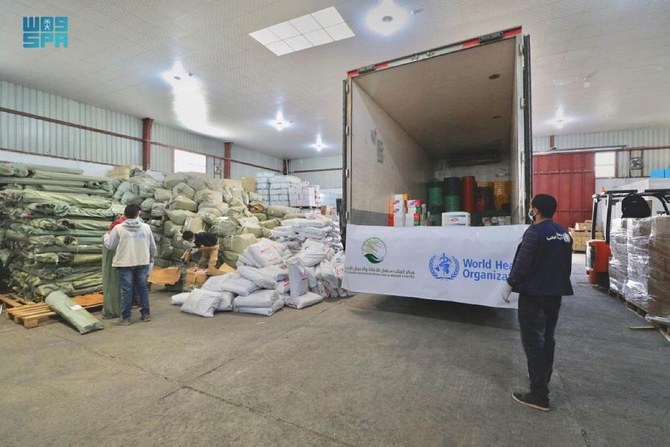
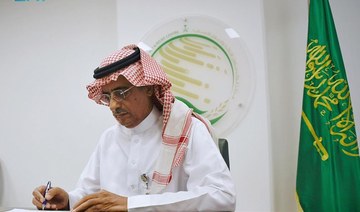
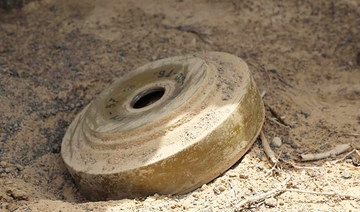
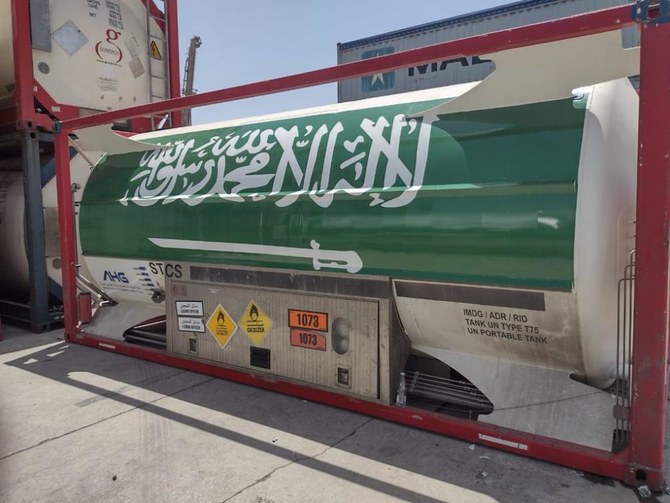
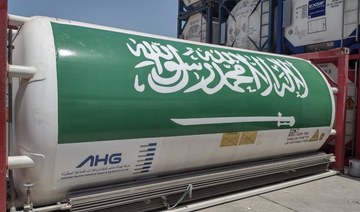
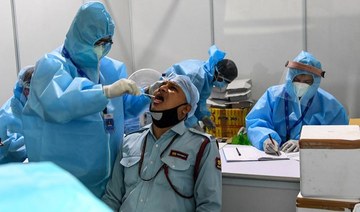


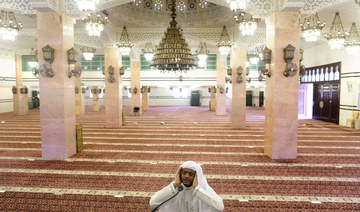

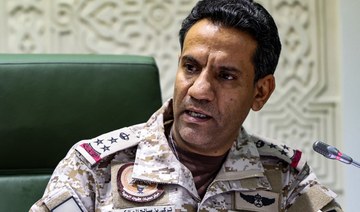
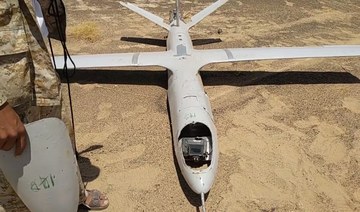
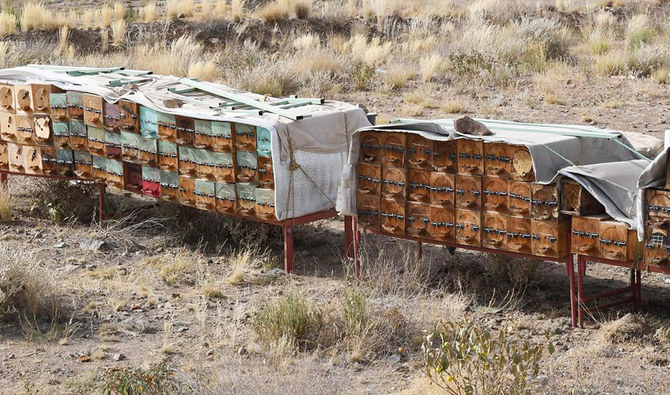
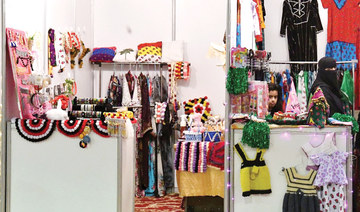
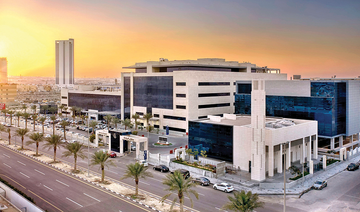














Comments
Post a Comment
Give us feedback